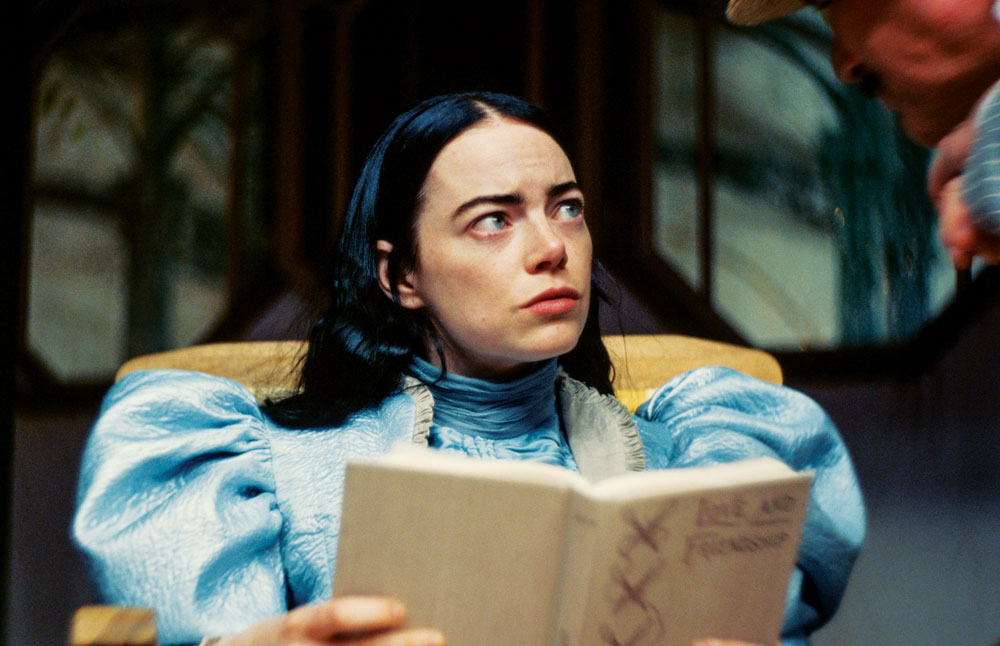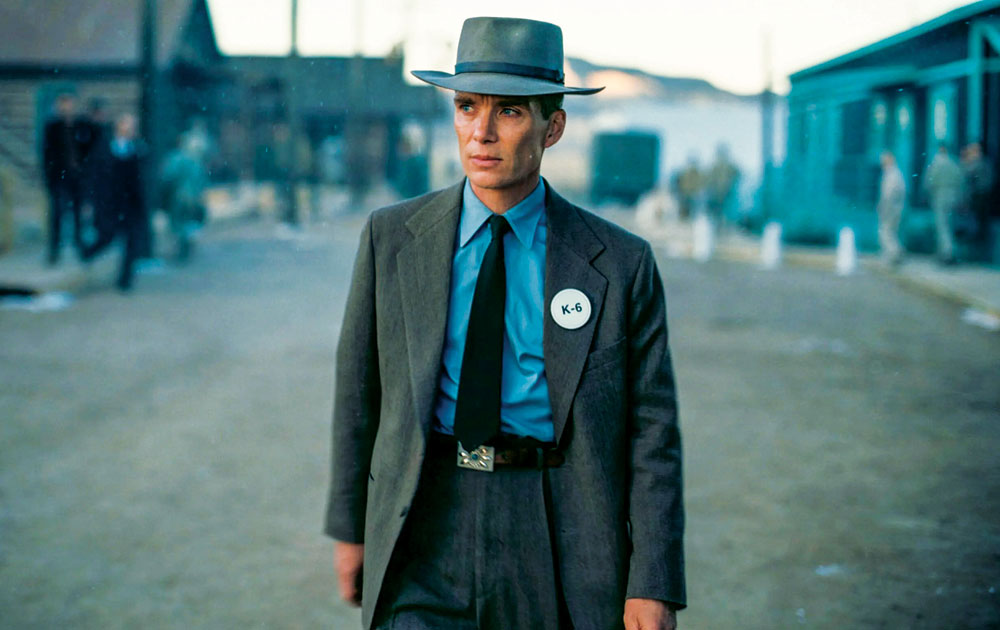
This is Oscar month, so we get straight to the films. I reviewed The Holdovers in the February column, Past Lives in December, and I will post a reviews of The Zone of Interest and Anatomy of a Fall next month. This was a wonderful year for the movies, and I hope you get a chance to see all of them. And the nominees are…
Maestro
This is a lush film from director/star Bradley Cooper, about the life of famed composer Leonard Bernstein, and one with its fair share of criticism (for several different aspects). Those criticisms are readily available, so I will stick to the film analysis here. And it is quite the film: the cinematography—alternating between color and black and white—is gorgeous, the sound is expertly crafted, the editing is perfectly placed, the settings/costumes/period aspects are impeccable, and the acting is wonderful. Cooper as Bernstein and Carey Mulligan as his wife Felicia Montealegre are marvelous, and they blend into the characters without a trace of the seams. Cooper as director is also masterful, and watching his directorial progress shall be an interesting endeavor. I don’t think this is a serious contender for Best Picture, but it is serious art.
Killers of the Flower Moon

Killers of the Flower Moon
Caveat: I am Martin Scorsese scholar and fan (the latter for about 40 years now). I have taught entire semesters on him and his films, I have written about him, and I have read extensively on him. I come to his films with a more detailed and exacting eye than most. To top it off, I am an Italian American from New York, so I have an acute understanding of his personal past. All that said, I am not immune to criticizing Scorsese when needed. Here, however, I don’t see any need—the film is a gigantic swing for the fences that just tops the wall. It is big, it is epic, it is a wild ride, and it is intensely thoughtful. It includes the trademark Scorsese touches: dynamic cinematography, relentless editing, wall-to-wall sound, wonderful period touches, and intricate performances. If you think the Scorsese catalogue is all Mafia movies, think again: his career spans six decades with all manner and genres included. This film, about the Osage murders of the 1920s, is no less the cinematic accomplishment than any of his best films. Yes, there are criticisms of this film, as there have been of most of his films, but I will let you wade into them on your own. I see this as a master director who is still (at the age of 81) at the height of his powers. I only hope we get to see more. I see a silver medal for this one.
Poor Things

Poor Things
Director Yorgos Lanthimos fashions a bizarre, surreal, fantastic, and semi-insane fairy tale—the Grimm kind, not Disney—that surprises, delights, and titillates. To sum up the story in a few sentences is futile, but let’s just call it a postmodernist take on Frankenstein that goes beyond the horror and gruesomeness of Mary Shelley’s tale while taking a wonderful dive into feminism. Emma Stone is spectacular in a role that sees her grow from a baby (in a woman’s body) to an intellectual and complex woman who sees the world for what it is. Willem Defoe, in an electric performance, is the Doctor in this scenario, and in a reversal, he is the scarred, monster-esque character who is both brilliant and insane. If you know Lanthimos’ work—such as Dogtooth, The Lobster, The Favorite—you have an inkling of what to expect. If you don’t know his work, well, then I wish I could see the look on your face as you watch it! This is the most cinematic of the nominees, and the film delights in being a film. I loved it, and I see the bronze medal here. Stone and Lily Gladstone are both deserving of the Best Actress award.
Barbie
So much has been said about this fantastic, breath-of-fresh-air film that I am left with offering you my personal take on it. I start with co-writer and director Greta Gerwig who orchestrates a masterful, gargantuan production. She is a budding superstar director and in the biggest snub of the year, was not nominated for Best Director. It is truly shameful. Margot Robbie is luminous and deserves way more credit than she gets for not only being a true movie star, but a visionary producer as well. Ryan Gosling is just great as Ken (if you don’t get the joke, you should). Anywhere else, he’d be the star. America Ferrera is her usual, fantastic self, and she delivers a monologue that should be required learning at all levels.
I haven’t laughed this much in a theater in a long, long time. I laughed at the absurdity; I laughed at the wit, I laughed at the characters; I laughed at the devastating criticisms of, well, everything, and most of all, I laughed at myself: an older, white male, who teaches and writes about film. It taught me quite a bit, especially about orientation and representation. It is not often that I laugh and learn. Thank you, Barbie.
American Fiction

American Fiction
This is an important film that everyone should see and discuss. Jeffrey Wright is fantastic, the story is sharp and funny, and the commentary is blistering. Wright plays a fledgling writer/professor who pens a satire of a stereotypical “Black story” that he believes most people want to read. He soon finds that everyone takes the story to be true, and he is pressed into creating an entire charade around the writing, the writer, and that writer’s backstory. The point of the film is that such stories diminish the Black experience, pigeonhole Black writers into surface-level tropes, cater to White audiences, and restrict most other Black experiences. Nobody would want to see a story about a Black professor whose estranged family gets together for a funeral, right?
The film is wonderfully written and acted, but I found it a bit uneven and technically limited. Still, I am thrilled that it was nominated in the category if for no other reason than everyone should see it. Along with Barbie, I enjoyed the levity while at the same time delivering searing social and political commentary. Put this on the “must-see-soon” list.
Oppenheimer

Oppenheimer
Another film that doesn’t need much explanation, so I will give my argument for why it is the best film of the year. You can read my previous Oscar columns for a more in-depth explanation of how I see the Best Picture category, but in a nutshell, it is the sum total of all the other categories. For example, add up Best Director, Best Screenplay, Best Acting, Best Cinematography, Best Editing, Best Musical Score, Best Sound Design, etc., and for the film that scores highest across the board, you get the Best Picture. Oppenheimer wins because it is technically brilliant, wonderfully acted, expertly directed, and flawlessly executed in every category. I see wins for Best Picture, Best Director (Christopher Nolan), Best Actor (Cillian Murphy) and several other technical categories.
Vincent Piturro, PhD, is a Professor of Film and Media Studies at MSU Denver. Contact him directly at vpiturro@msudenver.com or follow him on Twitter. For more reviews, search The Indie Prof at FrontPorchNE.com.


0 Comments